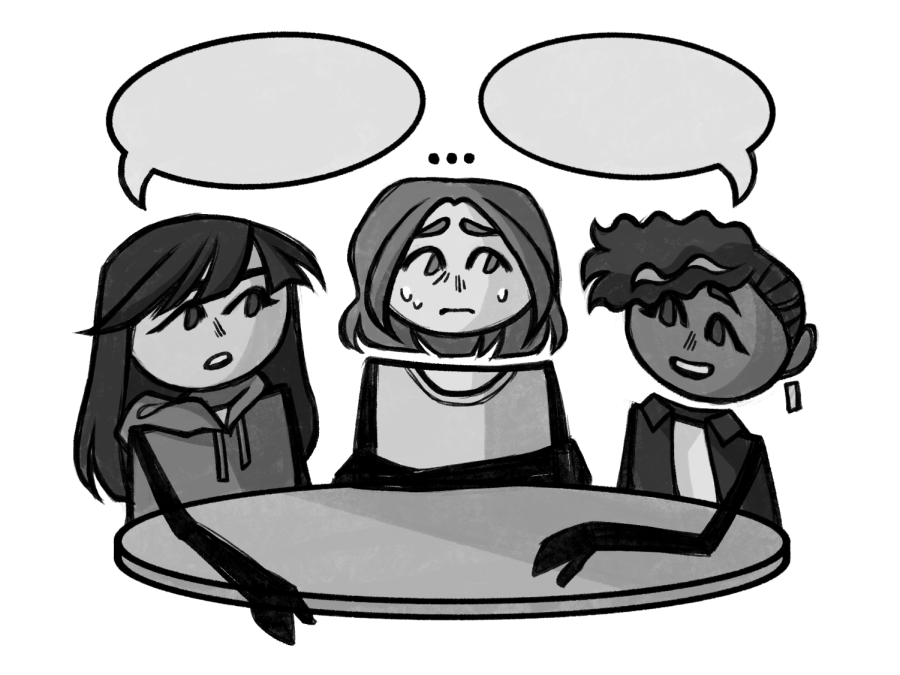CAMPUS: Share out or shut up?
Bruins discuss student participation in class
Before presenting their project, a student glances around the classroom, feeling their peers’ eyes on them. They inhale and begin to speak. The student’s voice trembles, and their hands shake.
For many classes on campus, presentations are mandatory in order for students to earn full participation points. SCHS students explain that this requirement is often nerve-wracking and full of judgment.
Sophomore Martyna Kaminska feels that her peers watching while speaking is frightening.
“There’s always moments, I feel, ‘Oh my god, everyone is looking at me and judging, everyone’s listening to what I say,’” Kaminska said.
Despite preparing beforehand, freshman Rachael Stuckey noted that for some students, the fear of presenting in front of a classroom setting stems from the difficulty to speak cohesively.
“I have to be fluent, and I have to be relaxed, confident and excited about the subject,” Stuckey said.
Activities such as class discussions often contribute to a major part of student participation, leading teachers to encourage students to share their opinions confidently in class. English teacher Paige Cruz believes doing group projects prepares students to pursue a certain work field.
“There’s very few jobs where… you aren’t working with other people and aren’t interacting and having to navigate, voice your opinion, build off of other ideas, concepts, question other people,” Cruz said. “It’s really just preparing you to be a good human, good employee and just a good person for yourself.”
For Spanish teacher Justin William’s class, collaborating and presenting is essential as students work in groups before being asked to share with the class.
“It allows them to stretch out whatever language that we’re trying to understand,” Williams said. “If you’re part of a role-play exercise where one person is a doctor and one person is a patient, then you’ve created an instance where you practice a specific vocabulary set that can be almost necessary if not overwhelmingly useful at some time in the future.”
For some students, working in groups and listening to presentations allows them to develop a sense of responsibility along with the ability to rely on their peers for support rather than the teacher alone.
“If I don’t know exactly what we’re doing in class, I can always ask,” Kaminska said. “You get more detailed explanations, and you can see other people’s points of view instead of just your own.”
Additionally, Williams prepares students ahead of time before asking them for their responses to questions.
“I definitely try to prompt a student, give a student enough confidence in a pre-questioning situation for when I do call on them,” Williams said.
Despite the difficulty of verbal communication in the classroom, Cruz emphasized the impact many students will benefit from while expressing themselves aloud.
“Taking advantage of the supports that your teacher gives you. Whether it’s preparing ahead of time, using note taking or bouncing ideas off of people, it’s really a great opportunity to grow and let your voice be heard too, despite the scariness of it,” Cruz said.


